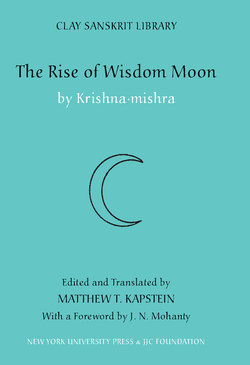Читать книгу The Rise of Wisdom Moon - Krishna mishra - Страница 37
На сайте Литреса книга снята с продажи.
Оглавлениеintroduction
devotional interests are cleverly utilized. (Dasgupta & De 1962: 483)
As De rightly stressed, the demands of Krishna·mishra’s subject-matter, the attainment of spiritual peace in the soul’s liberation as understood within the tradition of the nondualist school of Vedanta (advaita vedanta), both pose a challenge to the author in relation to properly literary expression and at the same time inhibit the reader’s properly literary reading of the text. An unfortunate result has been that modern readers have sometimes taken the work merely to be an elementary primer of Advaita philosophy, almost entirely ignoring its literary qualities. In the present translation, therefore, I have sought to lay stress on “The Rise of Wisdom Moon” as a clever and often quite funny play, quite apart from its message per se.
The message, however, is essential for any understanding of the work, and in seeking to address it in dramatic form, rather than in a formal theological treatise, Krishna·mishra was accepting a considerable risk. For above and beyond the difficulties inherent in dramatizing spiritual growth, he was taking a forthright stand in regard to one of the keenest disputes in classical Indian literary theory. In essence, the critics wished to establish whether, besides the aesthetic sentiments with which we are generally familiar—erotic love, humor, horror, and the like—is there additionally a distinct sentiment of peace?11 Can the mystical realization of oneness and the void be the subject-matter of great literature, or does its awesome depths compel only a surpassing silence, from which no literary art can emerge? Krishna·mishra was ________
xxxv
